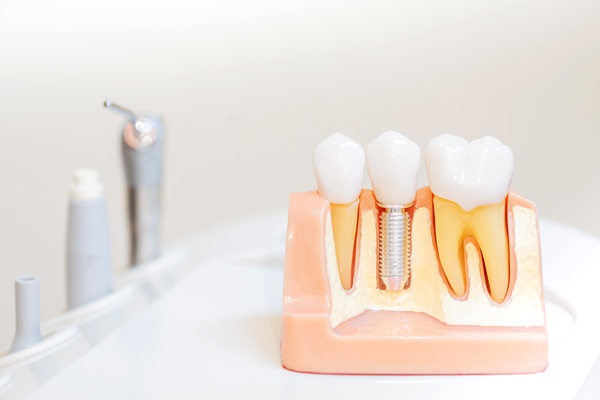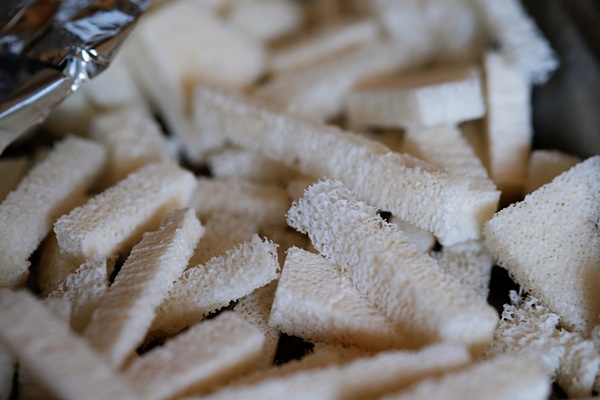Bone Grafting FAQs

When considering dental implants, your dentist may bring up the possibility of bone grafting if they believe that your jaw bone is too thin or soft to support the implant as is, which may cause the implant to fail down the line. Bone grafting is a basic surgical procedure done in the dental office to augment the bone.
Frequently asked questions
Below are some frequently asked questions about bone grafting.
How does bone grafting work?
Performed under local anesthesia, the grafting material is placed into the space left by a missing tooth. Afterward, the body will form new bone cells to replace the graft material gradually over several months.
Why may the procedure be necessary before dental implant placement?
Typically, dental implants should survive a lifetime, but this can only happen if the implant fuses firmly to the jawbone. If there is inadequate bone mass, the success rate of the implant procedure diminishes significantly. Low bone mass happens because the quality and quantity of the bone usually degrade when a tooth becomes missing, although the occurrence is hardly noticeable.
In some situations, when the person is ready to get the dental implants, the remaining bone may not be enough to support the implant. This is the reason bone grafting is necessary. The best choice is to replace a lost tooth as fast as possible and why dentists recommend bone grafting after tooth removal.
What is the source of the grafting material?
The dental expert may obtain the graft material from different sources, including your body. Recently, though, the grafts use synthetic materials and lab-processed bone from a human or animal donor (often a cow).
How safe is bone grafting?
There are no safety threats regarding the grafting material sourced from another part of your bone. However, the drawback of the method is that it requires creating another surgical site: the location where the bone is taken. Mineral bone replacements taken from animal bone or human donor have a minimal threat of infections because they are adequately screened.
The risk level for the two is similar because of the comprehensive and meticulous processing done at the trusted tissue bank. The result is a graft material that is totally safe. The mineral graft materials do not exist independently in the body but naturally dissolve and dissipate into the bone with time.
Is the procedure painful?
The dentist has to create a small incision in the gum to reach the bone under it. This means that you may suffer minimal soreness after the operation. The easiest way to reduce the pain is to apply ice packs on the jaw and use over-the-counter anti-inflammatory drugs and possibly pain relievers.
How long does healing take?
You should be good to go with a day or two. However, the bone regeneration process is only just starting at this point. Within the next few months, your body will keep depositing new bone cells and eliminate the grafting material.
Can the body reject the graft?
This does not happen because the material contains only minerals and no living or genetically coded element. The primary concern is the amount of bone that the body will form as a result of the graft. If the required bone mass is not attained when the graft has fully healed, additional grafting material may be added when placing the implants.
Call us today
If you have more questions about bone grafting, call us today so we can provide you with the information you need.
Request an appointment here: https://spectrumsurgical.net or call Facial Spectrum at (816) 524-4334 for an appointment in our Lee's Summit office.
Check out what others are saying about our services on Yelp: Read our Yelp reviews.
Recent Posts
Dental implants represent a durable and aesthetically pleasing solution for replacing missing teeth. Understanding the proper care for dental implants remains essential to ensure longevity and optimal function. Adhering to recommended practices significantly reduces the risk of complications, preserves oral health, and maintains the attractive appearance and comfort associated with implants. By implementing consistent maintenance…
The jawbone is the part of the face that holds many essential elements together, such as the teeth, ligaments, and muscles; however, bone grafting may sometimes be necessary if the jawbone is too weak to perform these tasks. A person’s jawbone can deteriorate over time, whether due to age, genetics, poor oral health, cancer, or…
Finding lasting relief from issues such as misalignment and facial asymmetry can involve specialized procedures. Fortunately, corrective jaw surgery is a reliable option for addressing these concerns. A dental specialist realigns the upper or lower jaw during this process to promote better function and comfort. Although the procedure can benefit health and appearance significantly, a…
Many individuals seek rhinoplasty to enhance facial harmony, improve nasal function, or correct structural abnormalities. As a surgical procedure that reshapes the nose, rhinoplasty can address aesthetic concerns as well as breathing difficulties caused by structural defects such as a deviated septum. Understanding the consultation process, surgical techniques, and what to expect from the recovery…


